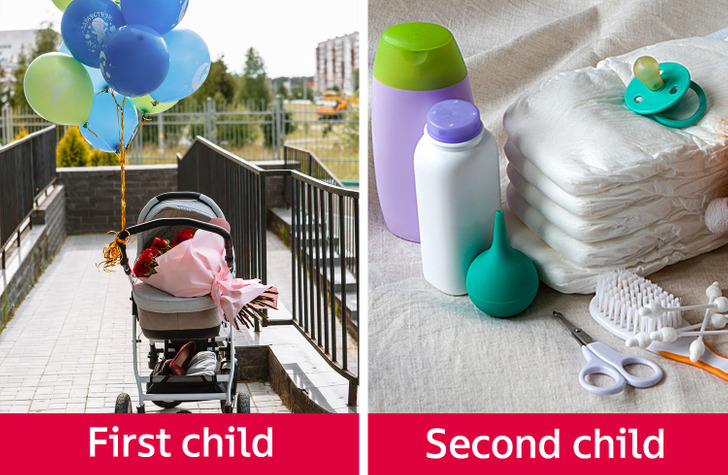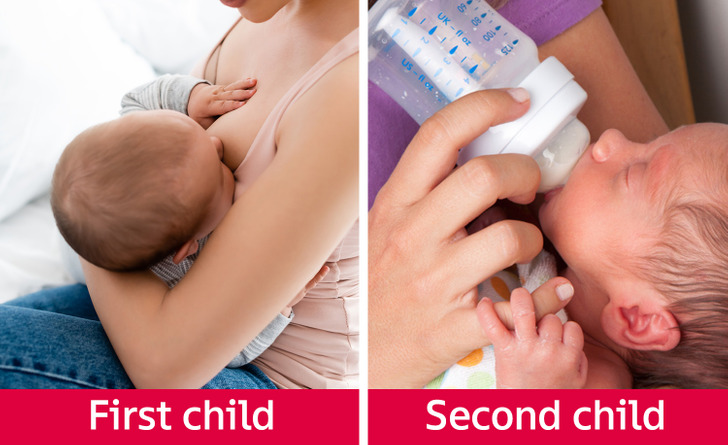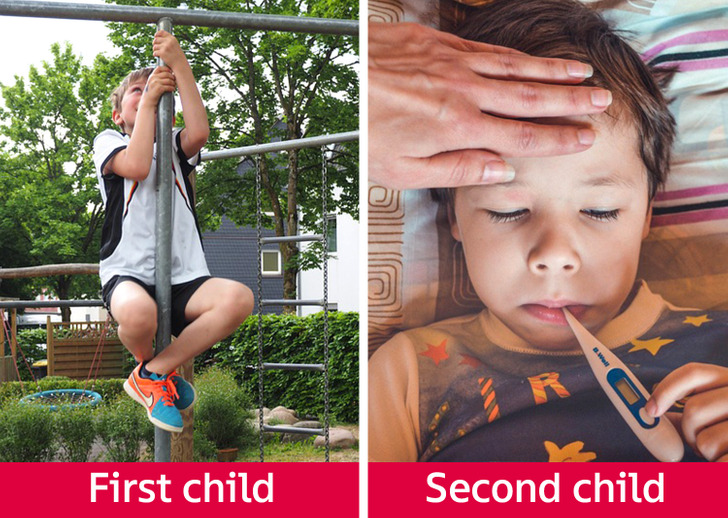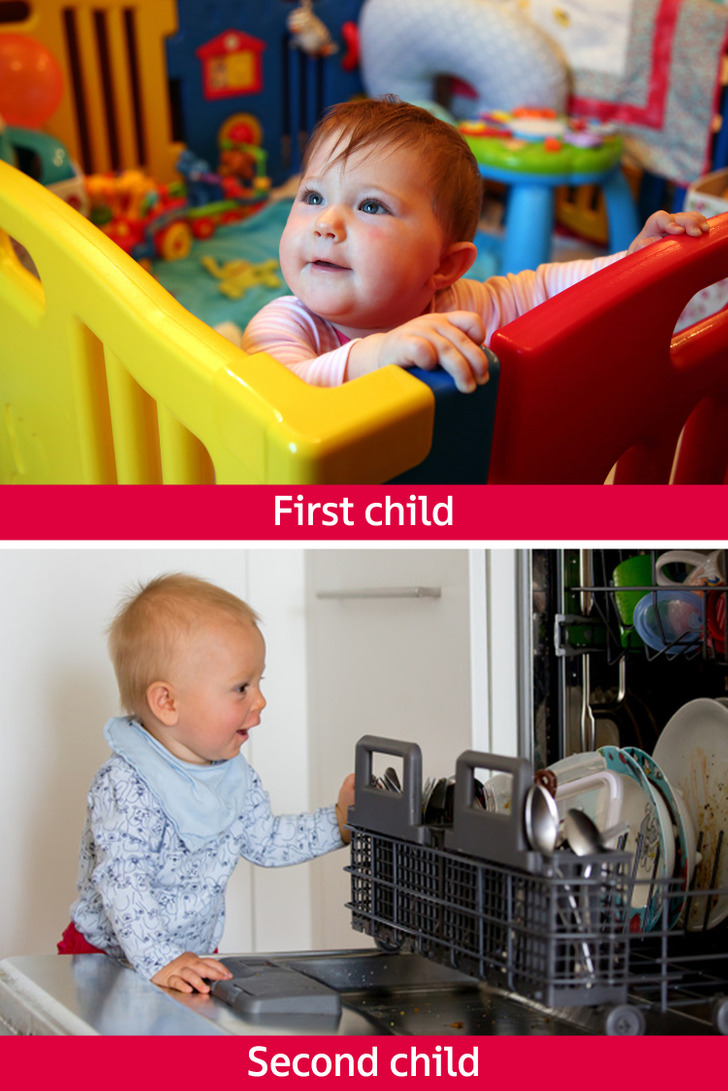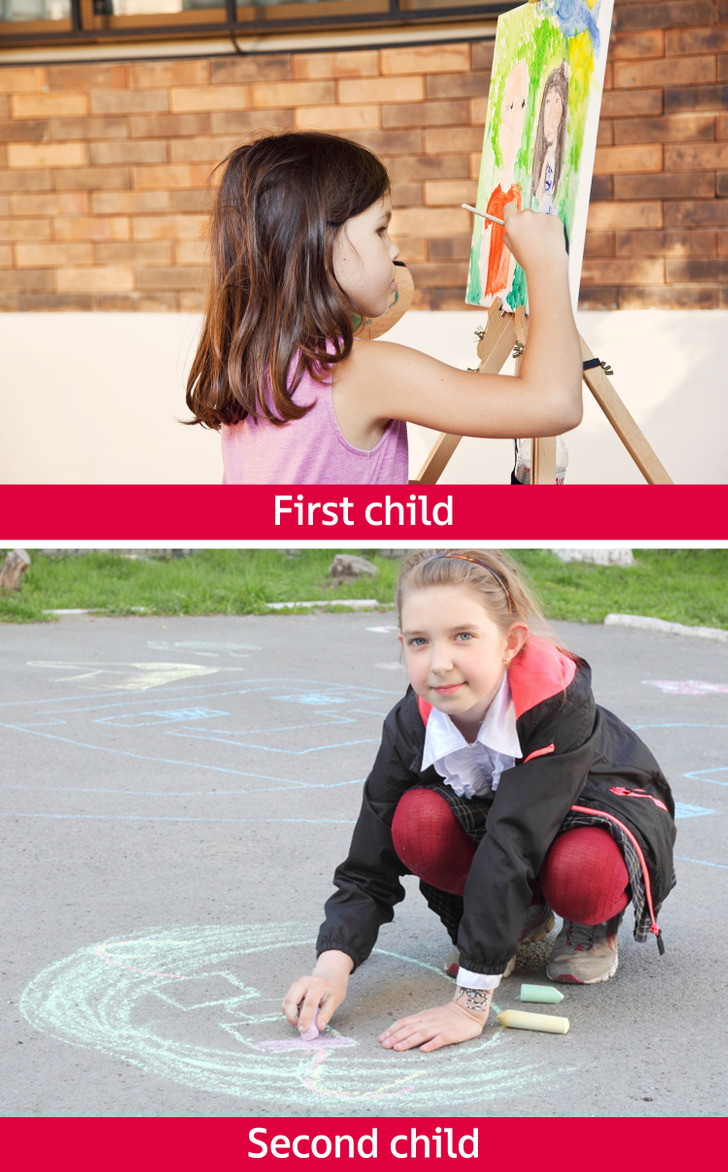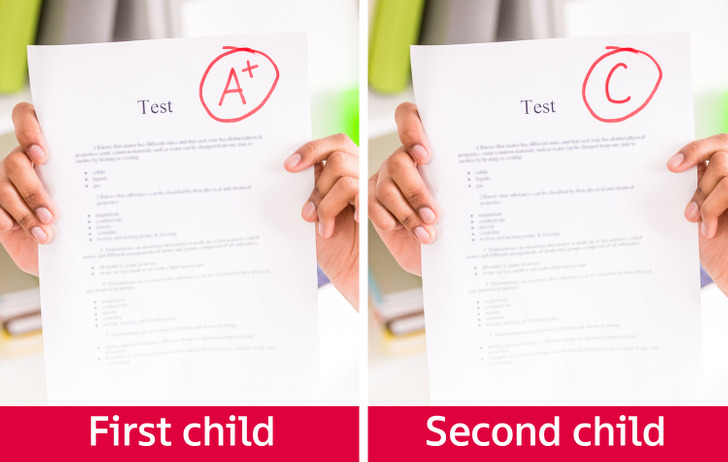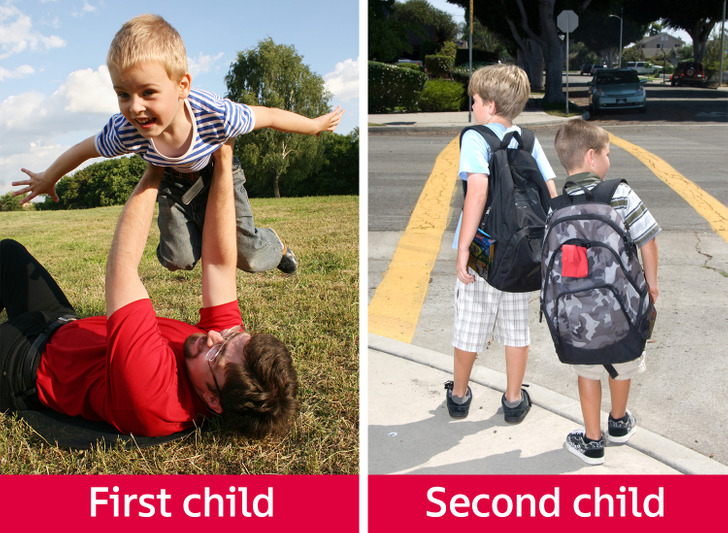12 Things About Raising the First and the Second Child, That Make Them so Different
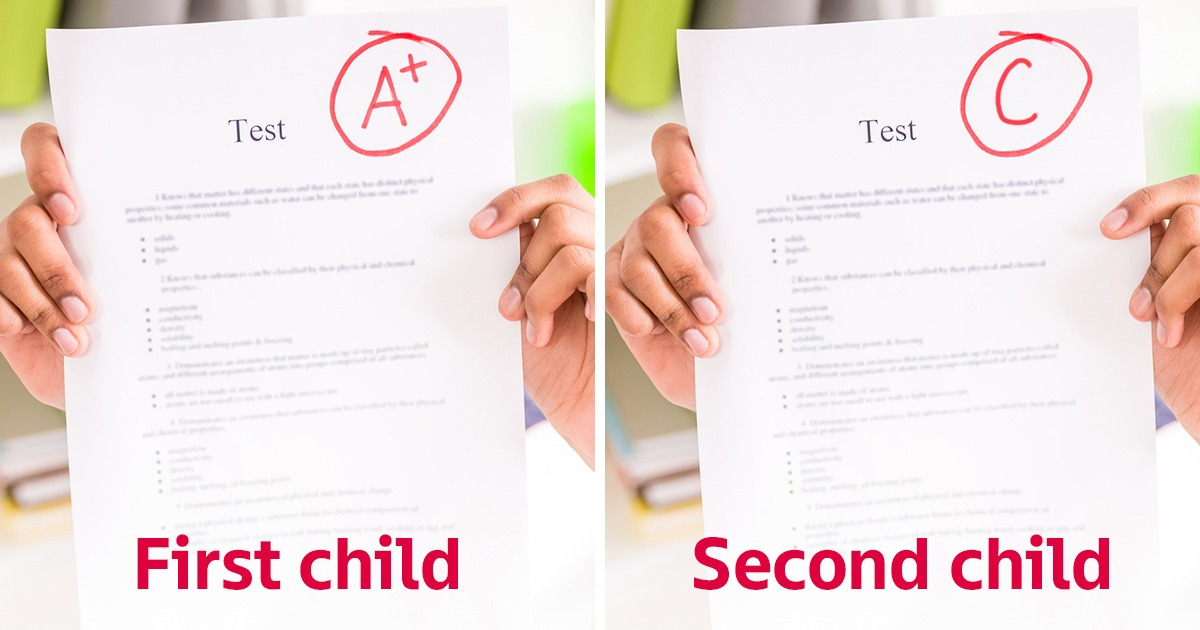
Many parents that are raising several children can confidently say that their approaches to raising them are different. And because of these differences, the kids growing up in the same family may even resent each other. For example, the older kids feel that it’s unfair when their parents make them babysitters, and the younger kids don’t like it when firstborns are allowed more things than they are.
Parents usually prepare for their firstborn child like it’s a party.
On a wave of euphoria, future parents might buy a bunch of useless accessories for their baby, and leaving maternity home will be a huge event. But more experienced mothers and fathers won’t do any photoshoots with the baby, buy any special diapers, or plan which kindergarten they will go to. They will only buy the most necessary things they need during the first month.
After having the second child, the mother might have no time for breastfeeding.
Researchers found that the second and the following kids are way more likely to eat formula. Firstborns have an advantage here — they are usually breastfed for a longer time. Besides, with repeated pregnancies, mothers are not as worried about their schedule and don’t stop eating their favorite meals.
Firstborns usually get sick less often at an early age.
Parents often say that their firstborns didn’t sneeze for the entire first year of life, but the next child often got sick. It turns out that the older child brings all the germs home from school and kindergarten. So, moms and dads have to pay more attention to their second child‘s health. For example, tell them to exercise in the morning.
Parents don’t care about cleanliness with their second and later-born children.
Of course, the number of laundry parents has to do increases by a whole lot with the second child. So, while firstborns get a new set of clothes every time they get stained, the next child might not be as lucky. A little spit-up on the shirt? Whatever, let’s just use a Kleenex.
Parents don’t worry about the sleep of their second child as much.
Beginner parents go through a lot of trial and error to understand how their child will sleep. Many think that the baby should sleep in bed, covered with a blanket, and then walk slowly around them. But the second child might sleep wherever they want, on the bed, in the stroller, or in the booster. Anything for a little bit of quiet time.
With the second child, parents aren’t as protective.
After having a firstborn, parents start cleaning the house very often, they don’t give them candy and control the time they spend with devices. But when the second child is born, parents realize that children are not that fragile, and there’s nothing terrible about tasting a cell phone.
Firstborns can’t explore the house as much.
From their experience, parents already know that children will still climb and reach any place in the house that they want. So, they don’t close every door all the time, and just watch the kids make sure they are safe.
There are higher expectations of firstborns.
A family that has a first child is ready to do everything to develop their intelligence and creativity. Many parents read books to their babies and take them to all sorts of cultural events. Eventually, the next children in the family usually get more free time.
Older children might be more successful at school.
Scientists even conducted a study and proved that older kids have higher IQ levels. It’s all because they often become “teachers” for their younger siblings. So, firstborns process information better, think faster and answer different questions more correctly.
Firstborns have to grow up faster.
They usually hear, “You’re the older one!”, which automatically means that they have more responsibilities. They have to be a role model for their younger siblings who are enjoying their childhood.
- As the older child, I’m used to my parents expecting more maturity from me than my little brother. So, when I do something childish or whiny or whatever, they get a lot angrier than they would if my brother did so, because, and I quote, “littler than me, he doesn’t understand”. He’s 9. He obviously understands. © Marina Kreder Magnani / Quora
Older children might have more on their plate when they have siblings.
Sometimes, parents start treating their firstborns as assistants or free babysitters when they have a second child.
- I have 4 younger siblings, and one is still in diapers. I learned how to change diapers when I was 7, and I have 2 siblings above age 7 that have not even tried to change a diaper. When I do chores I clean my room, clean up all the shoes, and clean up a whole room full of my sibling’s toys, and I do the picky eaters’ dishes. © Alia Mecham / Quora
Firstborns have more privileges.
Psychologists think that firstborns usually have tougher lives — parents practice their upbringing methods on them. But as compensation, they might be allowed more than other kids, for example, to go to bed later, drive the father’s car, or experiment with their appearances.
- Because as the firstborn, you get lots of perks. I got a car at a discount, my insurance dirt cheap as my parents put me on their policy, I got a later curfew and when I started mowing lawns at 13, daddy bought me my own mower at a flea market. © Crysti Drake / Quora
How many kids are there in your family? Do you feel that you have a different approach to raising different kids?
